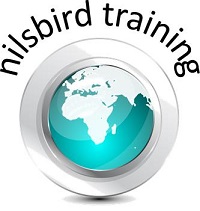A slight delay to this blog post but, fortunately, the marking season and the National Tutoring Programme support I’ve been doing in a primary school are coming to an end, so I can now concentrate on a few other things.
This blog post is titled Telling the time – an introduction. During my time at the primary school, I have tried to support student understanding of how to tell the time using an analogue clock:

Because of the covid pandemic, students in the UK missed a lot of face-to-face lessons and one of the casualties, for some primary students, was being taught how to tell the time. So, when I started my support, I made it my mission to try to teach the students how to tell the time using an analogue clock. (The journey I have made has made me realise how telling the time can be taught and all the mathematics that can actually be taught using a clock!)
Now, the thing is, some of you reading this post might question why it is important to teach students how to tell the time using an analogue clock, when they all have a phone! Well, throughout these posts on what I did I will try to explain why I think it is! (If you ask students if they can tell the time, they might, happily, tell you yes and confidently say, “It’s 1:17 pm”; getting the time from their phone! However, if you then showed them 1:17 on an analogue clock, they might not have a clue where to begin! I have a theory about whether this is a problem: being able to read digital time but not analogue. But I will say more about this in another blog post.)
I began my mission by drawing clocks on paper/creating flashcards for o’clock, half-past, quarter past and quarter to; then practising these with the students, getting them to draw their own clocks in their books. (To begin with I resorted to them drawing round something circular!)
Now, putting numbers on a clock (the first challenge for the students) is harder than you might think and that’s what I’ll begin with next time!
Don’t forget, via supportforteachers.com, you can find out all about the online teacher training conference, Educating the 21st Century Student. I have some great live speakers lined up: Alison Borthwick (alisonborthwick.co.uk), Dr Alan Cross, Dr Tony Birch (bircheducation.co.uk), Sioban Parker, Stephen Atyeo and myself. Speakers who will provide pre-recorded workshops: Ann Starks, Joseph Hubbard (creationresearchuk.com) and Sheba Moyo.
Thanks and see you next time,
David
nilsbird training

